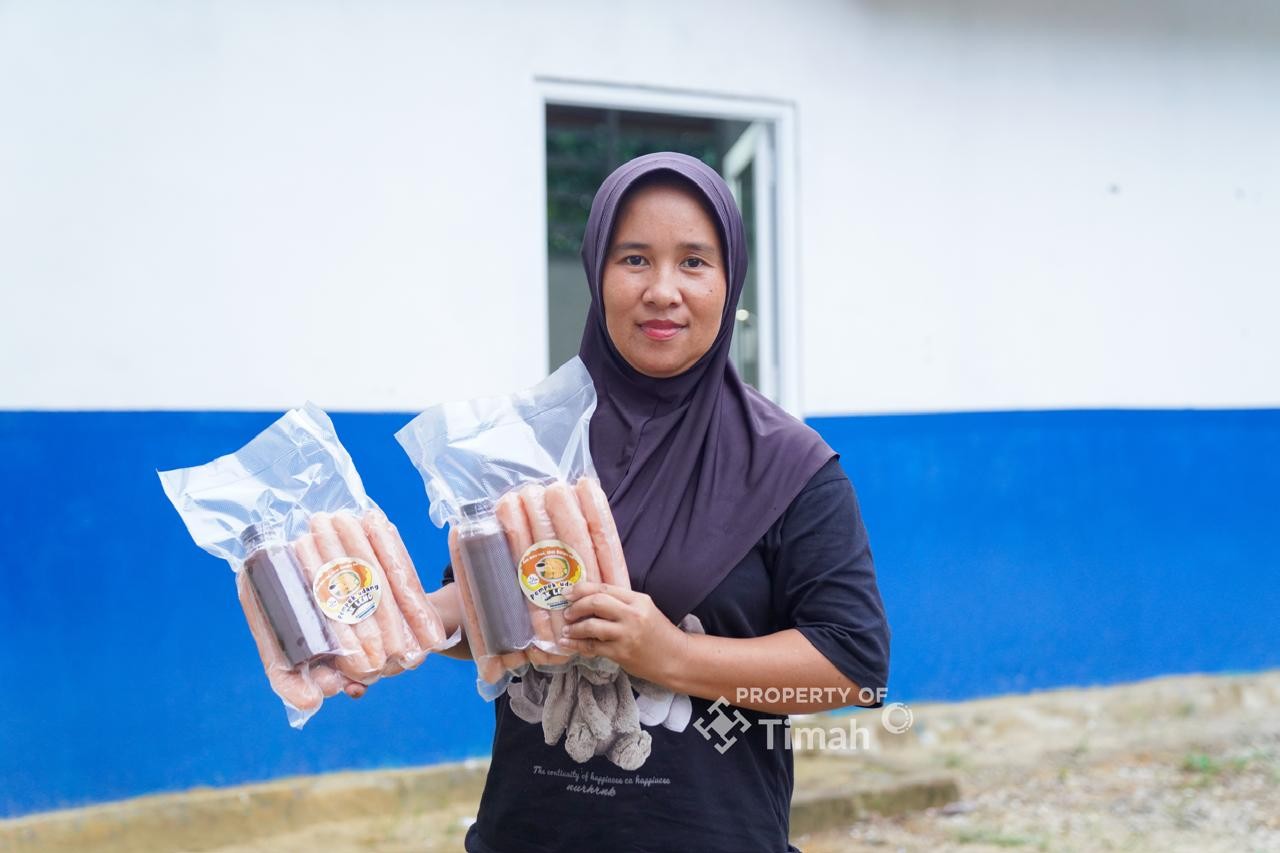
BANGKA BARAT – Shrimp pempek is one of the signature culinary delights of Belo Laut Village, West Bangka Regency. One of the most well-known brands is Ak Leho.
Ak Leho’s shrimp pempek business was started by Mersi and her colleagues in Belo Laut Village, and it has continued to grow with support from PT Timah.
Mersi shared that, in the beginning, they only made shrimp pempek on a small scale for family and neighbors. However, as time went on, orders began to come in.
The business, which has been running for several years, faced challenges in areas like marketing, equipment, and limited production capacity.
“We used to go around offering our pempek to government offices, and even then, production was still small-scale. Now, thank God, with support from PT Timah, everything is starting to grow,” Mersi said recently.
Thanks to PT Timah’s assistance, they feel a renewed sense of hope and motivation to keep expanding their business. PT Timah has even helped promote their products.
“It used to be that we only made pempek when we wanted to sell. Now, it’s different. We’re motivated because there are almost always orders, including from PT Timah who often buys our products. So we feel supported and more excited, not just receiving aid,” she added.
On regular days, they can produce hundreds of pieces of shrimp pempek using about 20–30 kg of fish per day. This number can increase during holidays like Eid due to higher demand.
According to Mersi, PT Timah has played a crucial role in supporting their business growth, providing equipment like a freezer, a grinding machine, vacuum packaging tools, a production house, and marketing support.
“Thank God, with PT Timah’s help, we can produce more because we now have a freezer to stock ingredients. Before, our production depended on ingredient availability. Now, if it’s shrimp season, we can buy in bulk and store them, so we can make pempek every day even when shrimp are scarce,” she explained.
Today, their shrimp pempek business not only continues to grow but also provides job opportunities for women in the area, helping increase household incomes.
“When we buy shrimp in large quantities, we involve local women to help peel them. So besides our group members, other community members are also benefiting from this business,” she said.
Mersi acknowledged that there are still challenges, such as raw material availability and suboptimal marketing. However, these obstacles continue to drive them to keep improving.
“We can really feel the difference in our business before and after receiving help from PT Timah. We’re more motivated now because we have a responsibility—to grow and generate income for us, the women here,” she said.
Looking ahead, Mersi hopes PT Timah will continue to support and guide their business, so Ak Leho’s shrimp pempek can thrive and bring even more benefits to the community.